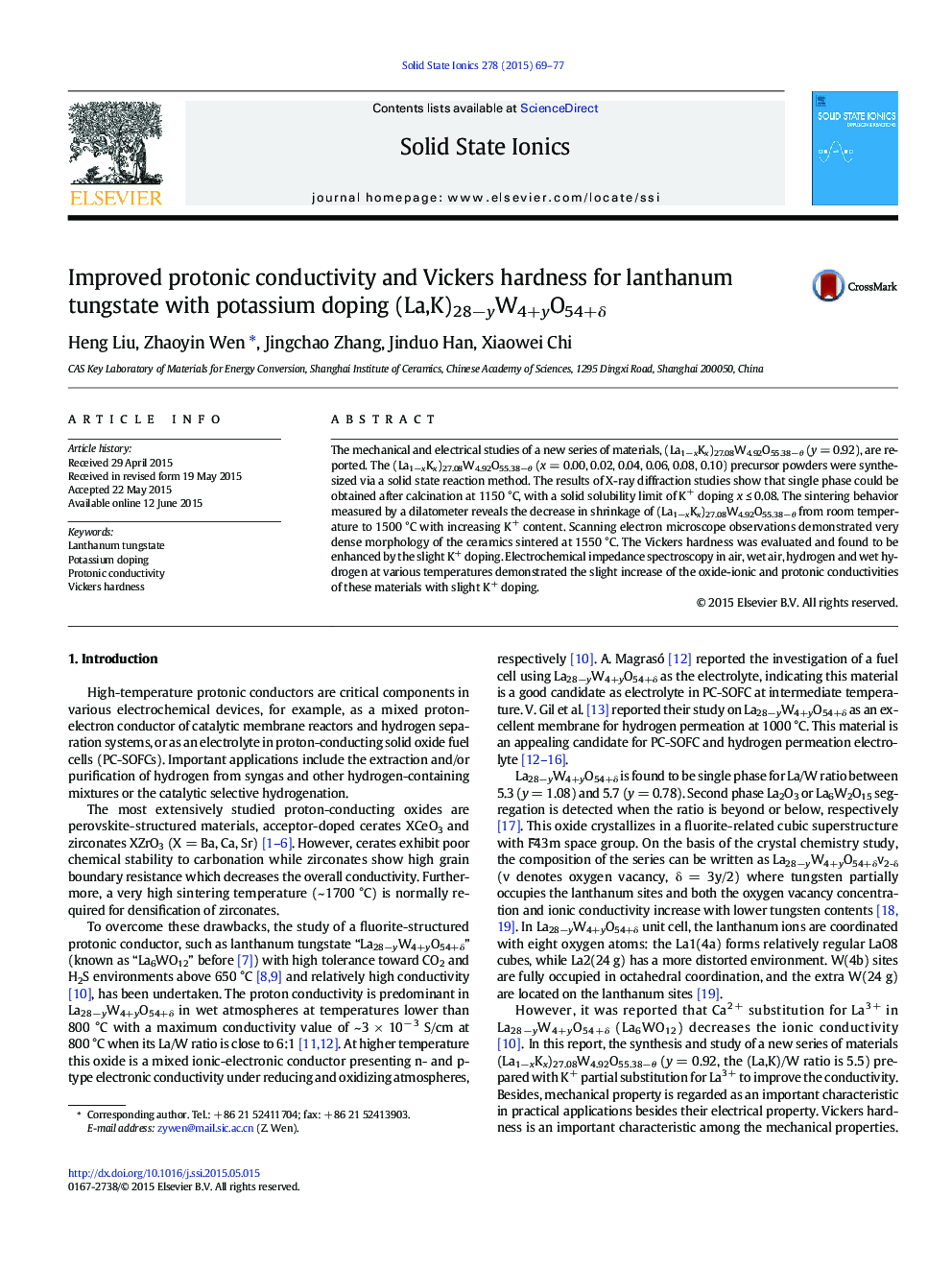| Article ID | Journal | Published Year | Pages | File Type |
|---|---|---|---|---|
| 1295698 | Solid State Ionics | 2015 | 9 Pages |
•K+ doped (La,K)28−yW4+yO54+δ was prepared.•Single fluorite phase was obtained after calcination at a relatively low temperature of 1150 °C.•K+ doping improves the protonic conductivity and Vickers hardness of (La,K)28−yW4+yO54+δ.•The mechanism of conductivity improvement was discussed via a compatible Kröger–Vink notation.
The mechanical and electrical studies of a new series of materials, (La1−xKx)27.08W4.92O55.38−θ (y = 0.92), are reported. The (La1−xKx)27.08W4.92O55.38−θ (x = 0.00, 0.02, 0.04, 0.06, 0.08, 0.10) precursor powders were synthesized via a solid state reaction method. The results of X-ray diffraction studies show that single phase could be obtained after calcination at 1150 °C, with a solid solubility limit of K+ doping x ≤ 0.08. The sintering behavior measured by a dilatometer reveals the decrease in shrinkage of (La1−xKx)27.08W4.92O55.38−θ from room temperature to 1500 °C with increasing K+ content. Scanning electron microscope observations demonstrated very dense morphology of the ceramics sintered at 1550 °C. The Vickers hardness was evaluated and found to be enhanced by the slight K+ doping. Electrochemical impedance spectroscopy in air, wet air, hydrogen and wet hydrogen at various temperatures demonstrated the slight increase of the oxide-ionic and protonic conductivities of these materials with slight K+ doping.
